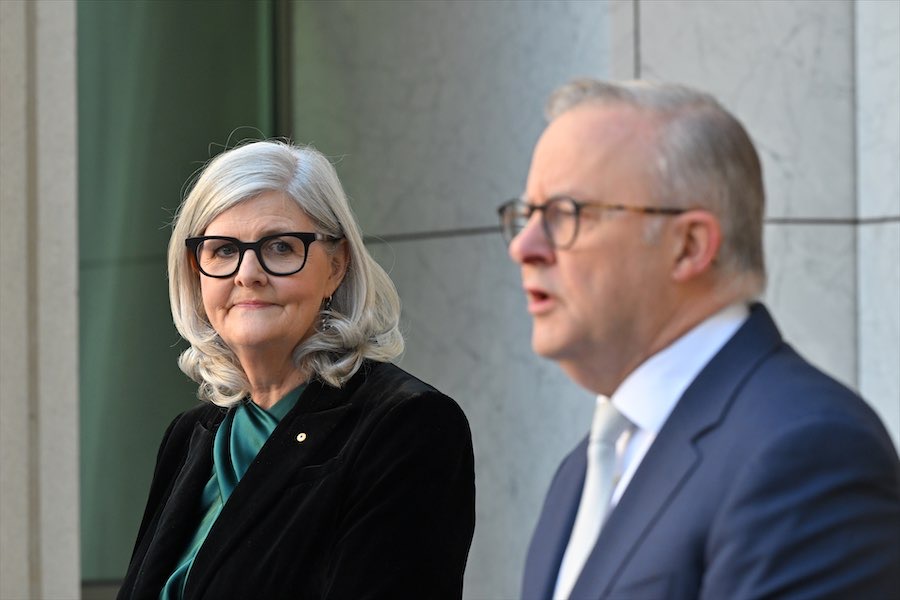
“Odd contradictions are numerous in English. There is no egg in eggplant, ham in hamburger and no apple (or pine) in a pineapple,” writes “Whimsy” columnist CLIVE WILLIAMS.
I FEEL indebted to my parents that English is my first language. Not for any arrogant reason, but simply because it must be one of the hardest languages to learn due to its inconsistencies.

It’s said that someone knowing 1000 to 3000 words in any language can carry on everyday conversations. Knowing 4000 to 10,000 words makes people advanced language users. Knowing more than 10,000 words puts them at native-speaker level.
However, on top of knowing words, there’s the issue of writing the language correctly. Churchill believed that good writing was grounded in a thorough knowledge of English grammar. It’s a rare accomplishment for anyone with English as a second language to write English without making grammatical mistakes.
One of the problems with some English words is that they are spelled the same but have different meanings. These are called “homographs” – as with “institution”. They are often used for double-entendres such as with Mae West’s: “Marriage is a fine institution, but I’m not ready for an institution.”
Then there are “heteronyms” – words that are spelled (or spelt) the same and have different meanings, but sound different, as in “The bandage was wound around the wound.” And to make matters worse there are words that sound the same but have different meanings – such as right and write. These are called “homonyms”.
Odd contradictions are numerous in English. There is no egg in eggplant, ham in hamburger and no apple (or pine) in a pineapple. Sweetmeats are an item of confectionery, while sweetbreads aren’t – they’re meat. Paradoxically, quicksand is slow, boxing rings are square, and guinea pigs are neither from Guinea nor are they pigs.
If the plural of tooth is teeth, why isn’t the plural of booth, beeth? One goose, two geese, so logically one moose, two meese? One hoof, two hooves so one roof, two rooves?
Doesn’t it seem odd that you can make amends, but can’t get away with just one amend for a lesser offence? If you have a clearing-out of odds and ends and get rid of all but one, what would you call it? (Marie Kondo probably doesn’t have that problem.)
If a vegetarian eats vegetables, what does a humanitarian eat? If killing a human is homicide, why isn’t killing an insect insecticide? Why do people recite at a play and play at a recital? Ship by truck and not by ship? Have noses that run and feet that smell? How can a slim chance and a fat chance be the same thing, while a wise man and a wise guy are opposites?
Americans are smart enough to invent their own words when English fails them. So sensibly, dove is the past tense of dive, while their athletes aim to pb and medal at sports events.
Anyone with Word spell check will know that Americans have cunningly designed the software to continually default to American English even when set to English English or Australian English (I’ve long ago accepted American English and American spellings from university students rather than try to fight the problem).
In any case, American spelling often predates today’s English spellings. Some common English/American spelling differences are labour/labor, honour/honor or centre/center, theatre/theater. Spelling without a “u” is the original Latin spelling, so it predates spelling with a “u”. Endings in “er” (instead of “re”) have roots in both Greek and Latin and predate the English “re” spelling. Similarly, the American use of “z” (as in organization) predates the English “s” version used commonly in Australia.
Why, you might ask, do we have the Australian Labor Party while Britain has the Labour Party? There are many theories, including sabotage by prominent Australian Labor politician King O’Malley, born in the US and an advocate of Australian spelling reform. Another reason may have been an Australian desire to differentiate our workers’ party from other British Empire Labour parties.
I’ll conclude my inconclusive ramblings with some English grammar examples:
“At high noon, the past, the present and the future walked into a bar. Without a doubt, it was a tense situation.”
And remember – when someone says: “Let’s eat Grandma” appropriate punctuation can save lives.
Clive Williams is a Canberra columnist
Who can be trusted?
In a world of spin and confusion, there’s never been a more important time to support independent journalism in Canberra.
If you trust our work online and want to enforce the power of independent voices, I invite you to make a small contribution.
Every dollar of support is invested back into our journalism to help keep citynews.com.au strong and free.
Thank you,
Ian Meikle, editor





Leave a Reply